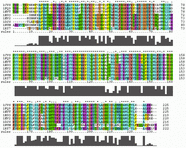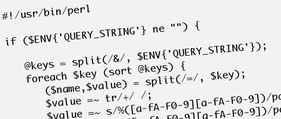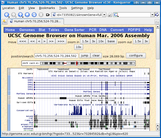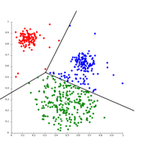Computational Biology (BIO 315)

Computational Biology is taught at the 6th semester of Biology undergraduates.The course covers a broad spectrum of computational approaches to biological problems. Classes are oriented towards problem solving, each having a plausible biological question as startpoint and then proceeding with suitable computational methods to solve it. The subjects with which we will be dealing include: "word" occurrence in DNA sequences and nucleotide composition, motif discovery, analysis of genomes and gene annotation, alignments of biological sequences, genetic variation in populations, molecular evolution and phylogenetics, comparative genomics, analysis of gene expression, proteomics and analysis of biological networks.
Visit the course website
Visit the course website
Introduction to Programming (BIO494)

The course covers basic knowledge of the Perl Programming Language. Variable declaration, lists and hashes, repetitive structures, logical control structures and the creation of functions and subroutines. Applications are biologically oriented, focusing mainly on the analysis of primary sequences. The second component of the course includes an introductory section to MATLAB focusing on the use of the main statistical packages and the development of high-quality graphics.
Visit the course website
Visit the course website
Computers and Databases in Biology (BIO109)

This is an introductory, compulsory course for the first year students of the Biology Department. Its main goal is to familiarize the use of computers in the primary search, presentation and very basic analysis of biological information. It comprises three distinct units: a) Use of the computer in various operating systems (Windows, Unix, Linux) b) Use of standard programs for text editing, use of spreadsheets and preparation of presentations and c) Accessing biological information through specialized databases.
Visit the course website
Visit the course website
Analysis of Biological Data (MSc level)

The course is aimed at Biology and Medicine graduates as well as at graduates of the general field of natural sciences with an interest in the analysis of biological data. The lectures focus particularly on "big data" and discuss a broad range of techniques for their analysis, interpretation and modelling. Descriptive statistics for data exploration, model fitting, clustering of data and decision techniques are discussed with sequence and expression data being almost always the starting point.
Visit the course website
Visit the course website
